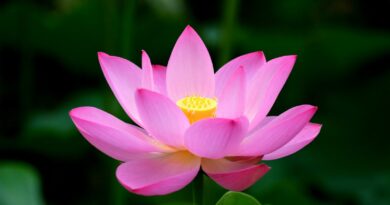Right At Awareness
Right at Awareness
§ “Whatever you experience, simply be aware of it. You don’t have to take after it. The primal heart has no characteristics. It’s aware of everything. But as soon as things make contact, within or without, they cause a lapse in mindfulness, so that we let go of awareness, forget awareness in and of itself, and take on all the characteristics of the things that come later. Then we act out in line with them — becoming happy, sad or whatever. The reason we’re this way is because we take conventional truths and latch on to them tight. If we don’t want to be under their influence, we’ll have to stay with primal awareness at all times. This requires a great deal of mindfulness.”
§ One of Ajaan Fuang’s students was feeling mistreated by the world, and so went to him for consolation. He told her, “What’s there to feel mistreated about? You’re the one that’s swayed under the events that have hit you, that’s all. Contemplate what’s happening and you’ll see that the mind is something separate. Events come passing in and then go passing by. So why be influenced by them? Keep your mind right at the simple awareness that these things come and soon they’ll be gone, so why follow them?”
§ “What, really, is yours? When you die, you won’t be able to take any of these things with you, so why waste time wanting anything? There’s nothing you have to want at all. Make your mind quiet. Make it one. You don’t have to concern yourself with your own attainments or those of other people. Simply be aware. That’s enough.”
§ “Whenever anything hits you, let it go only as far as ‘aware’. Don’t let it go all the way into the heart.”
§ “All you need to do is keep your sense of simple awareness solid and strong, and nothing will be able to overwhelm you.”
§ “Stay with awareness itself at all times — except when you sleep. The minute you wake up, stay right at awareness, and it won’t be long before discernment arises.”
§ One woman who practiced meditation with Ajaan Fuang came to feel that she had split into two people: one person acting, and one watching. She felt this way both while sitting in meditation and while she wasn’t — to the point where she didn’t feel like sitting in meditation at all, because she felt that sitting and not sitting were in no way different. She asked him about this, and he told her, “If you don’t want to, you don’t have to sit. Just keep this sense of ‘the watcher’ going at all times. Sitting with your eyes closed is simply an external convention. Just keep watching. When the mind and the body become separate like this, the body can’t press on the mind. If the body presses on the mind, the mind will have to be under the influence of what goes on in the body.”
§ “Right awareness has to be paired with the breath.”
§ “To be aware means to be aware as soon as defilement arises, to see defilement and not act under its power.”
§ “There’s no past here, and no future, only the present. No man, no woman, no sign of any kind at all. There’s nothing, not even self. What self there is, is only in a conventional sense.”
§ “Once awareness is solid, you have to get above and beyond it.”
§ In 1978, one of Ajaan Fuang’s students had to move to Hong Kong, and so he set up a small meditation center there. In one of his letters he asked Ajaan Fuang to write out a short outline of the main points of the practice, and this was the answer he received:
“Focus on all six of the elements: earth, water, wind, fire, space, and consciousness. When you’re acquainted with each of them, meld them into one, and focus on them until they grow stable and strong. Your energy will gather together until both the body and the mind feel full. When the physical elements are balanced and in harmony, they’ll grow full, and the mind will let go of them on its own and turn to oneness. The elements will be one, the mind will be one. So now you turn your attention to the mind. Focus on the mind until you become fully aware of it. Then let go of that awareness, together with whatever knowledge you’ve gained, and there won’t be anything left. Let go even of the events in the present that you’re aware of. That’s when intuitive discernment will arise, and meditation comes to an end.”
§ One night Ajaan Fuang took a group of his students up to sit in meditation at the chedi on top of the hill in Wat Dhammasathit. Looking out to the south, in the inky darkness, they could see the bright lights of the fishing boats far out at sea. He commented, “When you’re up on a high place like this, you can see everything.” For one woman listening, this had special meaning, because she knew he wasn’t referring just to the view from the hill.



